STV – Listening Gallery
As part of a Theatre Royal Oral History Project, our team of Oral History Assistants interviewed those with memories of the Theatre Royal Glasgow when it was home to STV. Participants ranged from presenters to producers; audience members in the studio to those watching at home; all sharing their stories of the STV years. Listen to a selection of excerpts from their interviews below.
-
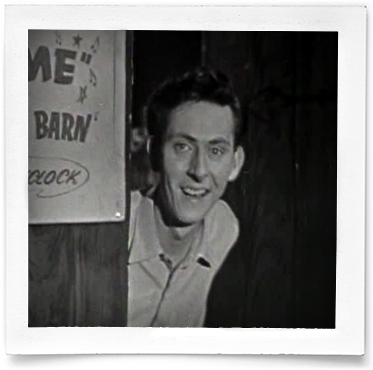
-
Auditioning for STV
So I went into the Theatre Royal, which was at that time in the process of being changed from a theatre into a television studio and they had taken out several rows of seats . . . there’s a book there which says they took them all out, but I don’t think they took them all out. And they extended the stage right out and made it a great big platform, on which they pushed these huge cameras. And so I went and did an audition and there were dozens of people there at it, but to cut a long story short it ended up with three of us being offered jobs. One was Arthur Montford, who carried on to be a, sports commentator of some considerable note, another man called Jack Webster who was a Glasgow Canadian, and he was taken on as the newscaster, and I was taken on as the General Announcer.”
-
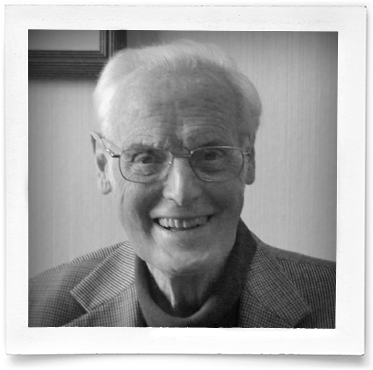
-
STV job interview
The Maryhill Public Hall is an unlikely place to start your television career, but I was invited up there to do an audition because I was working at the Evening Times on the sports desk at the time. The gentleman who had been briefed to be the new Sports Editor at STV was John Wilson and he couldn’t believe that I was so bad. A couple of weeks later I thought no more about it, but he invited me back to the Theatre Royal: really to make the numbers up for someone whom they had in mind, but at the last minute he decided he didn’t want the job. He didn’t fancy the television thing. I just went up, did my ad-lib, did my wee bit to camera, did an interview and I thought no more about it. And as I was leaving, Archie McCulloch who was one of the ‘heid yins’ in the Theatre Royal at the time along with Rai Purdy and Jim Coulthard and others, he said to me “would you like to work full time here?” I said well, I said, “I’m making thirteen pounds and ten shillings at the Evening Times, what’s the money?” . . . He said “I think we could probably go to a thousand a year”. I said “well let me think about it, I’ll take it!” And that’s how it was started.”
-
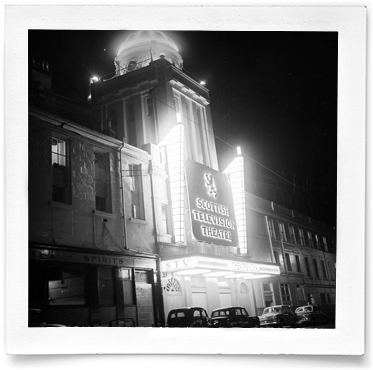
-
STV opening night programme
The opening night programme was terrific. The guy came over from Canada that Roy Thomson knew; a guy called Rai Purdy and he was the director. And cameramen and soundmen and people like that. And some training up the Territorial Army – all at Maryhill I think. But they were obviously pretty raw, but Purdy clearly knew what he was doing. Terrific show. And I think some young folk today who don’t do light entertainment live would be hard pressed to match it.”
-
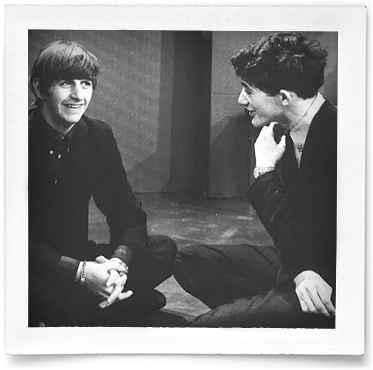
-
Birthplace of a career
Well it was the kind of birthplace of my career, in a way. On a Tuesday I would come into the Theatre Royal to do this programme and it was always a thrill to go in, because you didn’t always know who was going to be on it. “Oh, it’s Adam Faith, it’s Cliff Richard, it’s Johnny Mathis, it’s Tom Jones. It’s – who’s this? – The Beatles? All right, okay”. So it was like the birth, the birthplace, of my career, as a presenter, actor.”
-
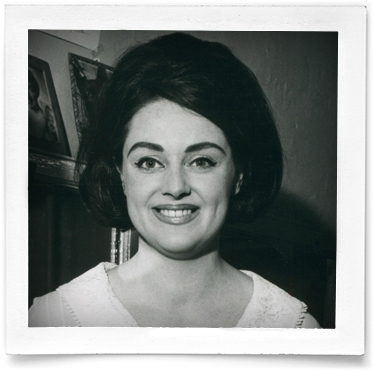
-
Watching The One O’Clock Gang
This is so wonderful. We get tickets to go to The One O’Clock Gang and you could be on television! It was major because it was live television, and so the mums that were at home were dressing you up. My Mother insisted that I put my hair in a bun and this big ribbon, pink ribbon, so that she could recognise me in the audience. Because, she said, “I’ll never see you, because it’s too quick, it’s too quick!” So she put a big ribbon in and I thought, right, I’ll sit up top.”
-
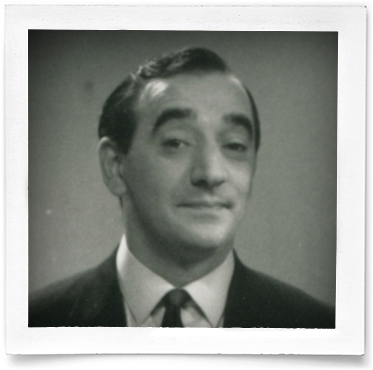
-
Remembering The One O’Clock Gang
The One O’Clock Gang opened with “sit back and relax, it’s The One O’Clock Gang!” And that became a sort of catchphrase in our house. [Laughs] My father would say to me, right . . .
(I mean this was when, you know, when I was 4 or something). Right , sit down: ‘Sit back and relax, it’s The One O’Clock Gang!’ ”
-
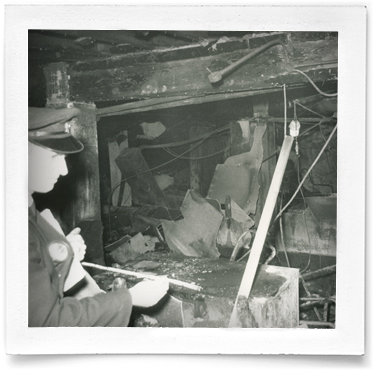
-
Fighting the STV fire
Initially when we turned up there at first it was just after six o clock, we were round at the back where all the heavy studio stuff came in. And that’s where we were working, in there. I was on a breathing apparatus set with some other guys, and we were working with the High X Foam Machines pumping them down when it started to build up really bad. It wasn’t too bad to begin with, and then all of a sudden it just got pretty wild and we got chased out it. So we got out of there, we took off the breathing apparatus sets, and then went round the front of the building and then for the rest of the night we just went through the main front door to get into the building to tackle the fire. But I could say that the Scottish Television Studio fire was the worst fire that I was ever at, for punishment.”
-
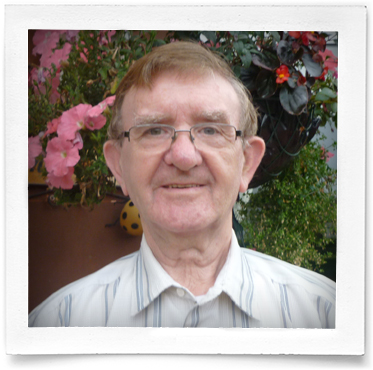
-
Fire at STV Studios
The 1969 STV studio fire in Hope street was quite spectacular, but horrendous. When we arrived there about twenty past six at night the street was full of white foam, which looked like snow. I arrived with the Partick crew . . . We reported to the control unit, handed our tally board in, which had the crew’s names on it, and their numbers. We came out the control unit, we went round the lane to the rear of the building next to a big roller shutter door, and next to that was a big door . . . and what they had pushed up against it was a High X Foam-making Unit which was pumping foam, high concentrated foam into the building. And by the looks of things it had been pumping quite a lot because, as I say, this white foam was all over the place.”
-
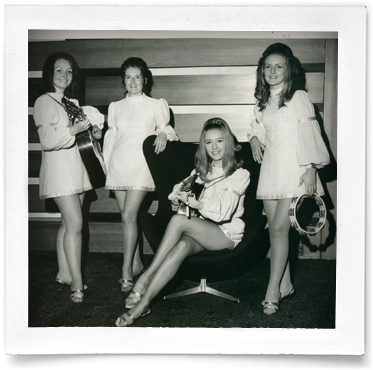
-
STV leaves the Theatre Royal
I felt that being in a theatre, it was, in a way, a transition from variety to television, which was, you know, the big threat. And in a way, going through the Theatre Royal to me felt as though we had brought it, brought the theatre with us. Brought variety with us. Softened the transition. Rather than killing it. And when we left the Theatre Royal we, I think, lost the focus. Whereas beforehand we had been dedicated, as a dedicated local station to our Scottish audience. So it was couthy. It was. But it was what they wanted.”
